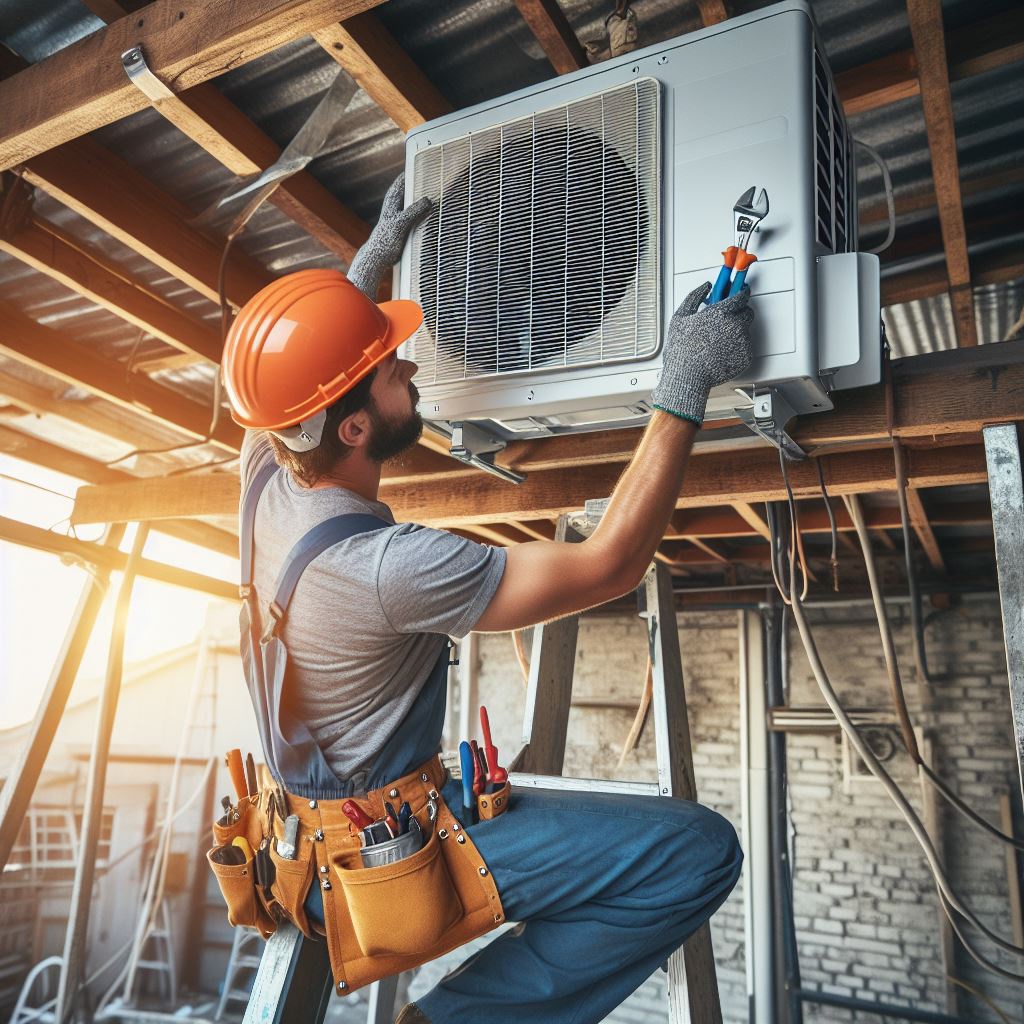Maintaining your HVAC system is crucial for ensuring comfort and efficiency as a homeowner. One common issue homeowners face with their air conditioning units is water leakage. If you've noticed water pooling around your AC unit, it's essential to address the problem promptly to prevent damage and maintain optimal performance. In this guide, we'll explore eight reasons your AC might leak water and provide practical solutions to resolve the issue.
Clogged Air Filter:
A clogged air filter is one of the most common reasons for AC water leakage. When the air filter becomes dirty or blocked, it restricts airflow, causing the evaporator coils to freeze. As the ice melts, it can overwhelm the condensate pan and lead to water leakage.
Solution: Replace the air filter regularly, ideally every 1-3 months, depending on usage. This simple maintenance task will improve airflow, prevent freezing, and reduce the risk of water leakage.
Dirty Evaporator Coils:
Over time, dust, dirt, and debris can accumulate on the evaporator coils, hindering the heat exchange. When the coils are dirty, they cannot absorb heat efficiently, leading to condensation buildup and water leakage.
Solution: Schedule professional HVAC maintenance to clean the evaporator coils annually. A skilled technician will thoroughly clean the coils and ensure they function optimally, reducing the risk of water leakage.
Refrigerant Leak:
A refrigerant leak can disrupt the cooling process and cause the evaporator coils to freeze. As the ice melts, it can overwhelm the condensate pan and result in water leakage.
Solution: If you suspect a refrigerant leak, immediately contact a certified HVAC technician. They will inspect the system, repair any leaks, and recharge the refrigerant to restore proper function and prevent water leakage.
Blocked Condensate Drain Line:
The condensate drain line removes excess moisture from the AC unit. If the drain line becomes blocked by algae, mould, or debris, it can cause water to back up and leak from the unit.
Solution: A wet/dry vacuum removes clogs from the condensate drain line. Alternatively, you can flush the line with bleach and water to kill algae and mould. Regular maintenance of the condensate drain line will prevent blockages and water leakage.
Improper Installation:
Inadequate AC unit installation can lead to various issues, including water leakage. Proper positioning or sizing of the unit can prevent drainage problems and water pooling around the unit.
Solution: If you suspect your AC unit was improperly installed, consult a professional HVAC technician to assess the situation. They can identify installation errors and recommend corrective measures to prevent water leakage.
Damaged Condensate Pan:
The condensate pan is designed to collect and drain excess water from the AC unit. If the pan becomes cracked or damaged, it can cause water to leak onto the floor.
Solution: Inspect the condensate pan regularly for any signs of damage or corrosion. If you notice any issues, replace the pan promptly to prevent water leakage. Additionally, consider installing a secondary overflow pan as added protection against leaks.
Low Outdoor Temperature:
During periods of low outdoor temperature, the evaporator coils may freeze, leading to water leakage when they thaw.
Solution: If you live in an area with cold winters, consider installing a freeze sensor or low ambient temperature kit on your AC unit. These devices can detect freezing conditions and prevent water leakage by shutting off the unit when necessary.
Overworked AC Unit:
An overworked AC unit may need help to keep up with cooling demands, leading to increased condensation and water leakage.
Solution: Avoid overworking your AC unit by setting the thermostat to a moderate temperature and providing adequate airflow around the unit. Additionally, schedule regular maintenance to ensure the system operates efficiently and prevents water leakage.
Water leakage from your AC unit is a common issue that can cause damage and discomfort in your home. By identifying the underlying reasons for the leakage and implementing the appropriate solutions, you can prevent further damage and ensure your AC operates efficiently. If you require professional HVAC repair in Rigby or maintenance assistance, don't hesitate to contact Sprinter Total Indoor Comfort for expert service.
For professional HVAC repair and maintenance services in Rigby, contact Sprinter Total Indoor Comfort today! Our team of certified technicians is dedicated to keeping your home comfortable and efficient.


No comments yet